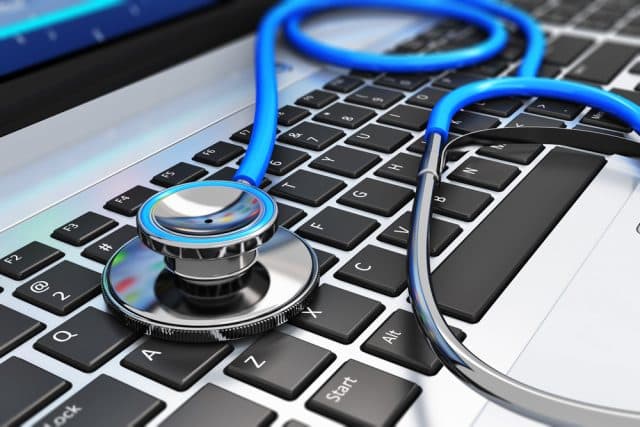The growing role of AI in healthcare: how devices are changing the game

Healthcare hinges on diagnostics, which is why doctors must accurately identify the illnesses they aim to treat to provide proper care for their patients. An incorrect diagnosis introduces the risk that treatment may be ineffective or harmful.
To diagnose properly, doctors rely on data by measuring key metrics and evaluating their implications based on experience, education, and best practices. The more data available to doctors, the more accurate their diagnoses can be.
However, as the volume of data doctors must assess increases, more resources are needed to analyze it effectively. This is where artificial intelligence enters the picture.
AI streamlines the data analytics process
Artificial intelligence excels at data analytics. It brings power and efficiency to the entire process, starting with data cleaning. AI automatically does the repetitive and time-consuming tasks needed to prepare data for analysis.
AI opens the door for doctors to handle much larger volumes of data. It analyzes vast datasets at unparalleled speeds, effortlessly drawing insights that require complex comparisons. And AI's advanced algorithms allow it to detect subtle patterns and anomalies in data in a fraction of the time it would take for human agents.
AI also introduces the capacity for advanced predictive analytics. It not only provides insights on what the data means for the present, but also suggests what it might mean for the future. Integrating the power of AI into conventional practices provides physicians and their patients with better tools for managing the healthcare process.
AI allows doctors to engage with more data
The diagnostic process typically begins with patients' complaints when they explain to their doctor that they are experiencing pain or suffering from some other malady, providing the first data point. Doctors add to the patients' subjective statements by measuring the patient's weight, pulse, temperature, and other key vital signs. They may also review the patient’s medical history to identify other factors that could be related to the issue at hand.
Adding AI to the equation allows doctors to include even more data in their evaluation. With AI, doctors can include social determinants of health, which include factors such as socioeconomic status and access to social support networks. Medical literature and research findings can also be quickly and easily leveraged to uncover factors that may be valuable as doctors develop their diagnoses.
AI empowers patients to take control of their healthcare journey
Modern medical technology has created opportunities for patients to play a larger role in managing their health journey. The emergence of connected telehealth tools, such as multi-sensor home medical devices, allows patients to track vitals on demand. Data gathered in this way can be provided to doctors in real time or asynchronously, giving them an accurate and objective view of the patient’s progress.
AI enhances the capability of telehealth tools by giving patients the power to track certain health conditions on their own, alerting patients when problems are detected. Fertility and perimenopause tracking examples of how home devices can leverage AI to help patients achieve better health outcomes.
AI also makes it easier for patients to gain clarity on health conditions. AI-powered chatbots, which statistics show that one in six adults now use for medical guidance at least once a month, provide patients with somewhere to turn when doctors aren't available. While chatbots should not be considered foolproof, they can provide a helpful starting point for patients with concerns about their health conditions.
AI allows health systems to track broader health concerns
Early detection is essential to preventing the spread of diseases across geographic areas. But obtaining the data necessary for early detection and effectively analyzing it is a challenge.
AI empowers early detection by helping to gather accurate health data and to conduct the analysis needed to understand its significance. In this way, it gives healthcare systems the capacity to sift through vast pools of data and provide early warnings when outbreaks seem imminent.
For example, AI can be used to analyze trends in symptoms, diagnoses, or medication requests being reported by doctors across a geographic region. As cases begin to spread across a region, AI can be used to rapidly assess who is being affected, the conditions they are experiencing, and what treatments are proving effective.
AI's use in connected telehealth tools ensures the data being provided by patients is accurate and considered in the context of the patient's unique circumstances. It can also provide patients with personalized early warnings based on the trends AI detects in their unique health data.
AI gives doctors and other practitioners the ability to draw on more data for their diagnostics and develop a clearer picture of what might develop in the future. It also helps patients participate in managing their own care with more precision. In both cases, AI is a game-changing innovation that is reshaping the future of healthcare by making treatment more proactive, personalized, and effective.
Image credit: scanrail/depositphotos.com
Marcus Soori is the founder and CEO of O/D Vision and the inventor of Tricorder.Zero, a fully integrated, touchscreen seven-sensor health and fitness tracker that can be used for personal health and fitness monitoring and in connected telehealth.